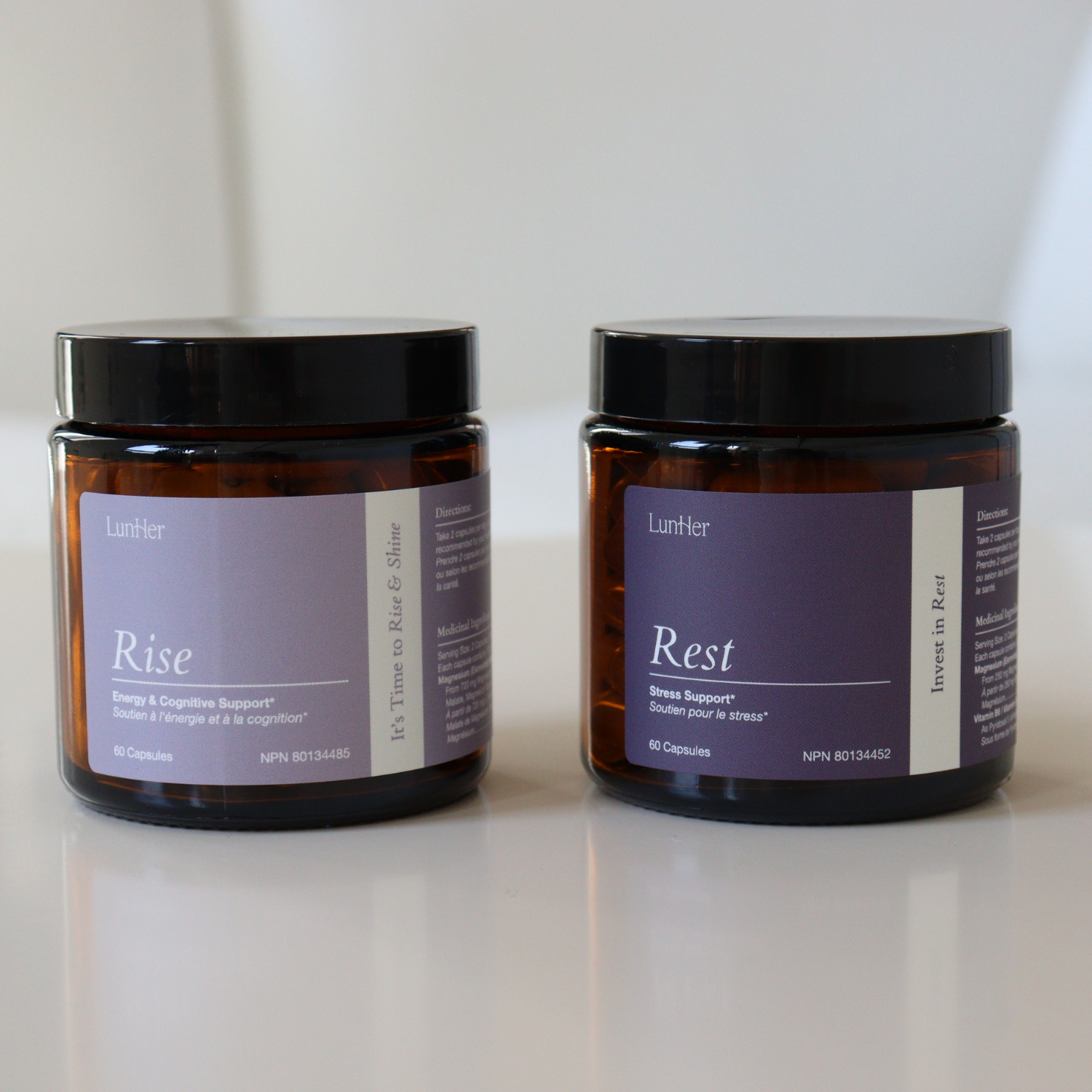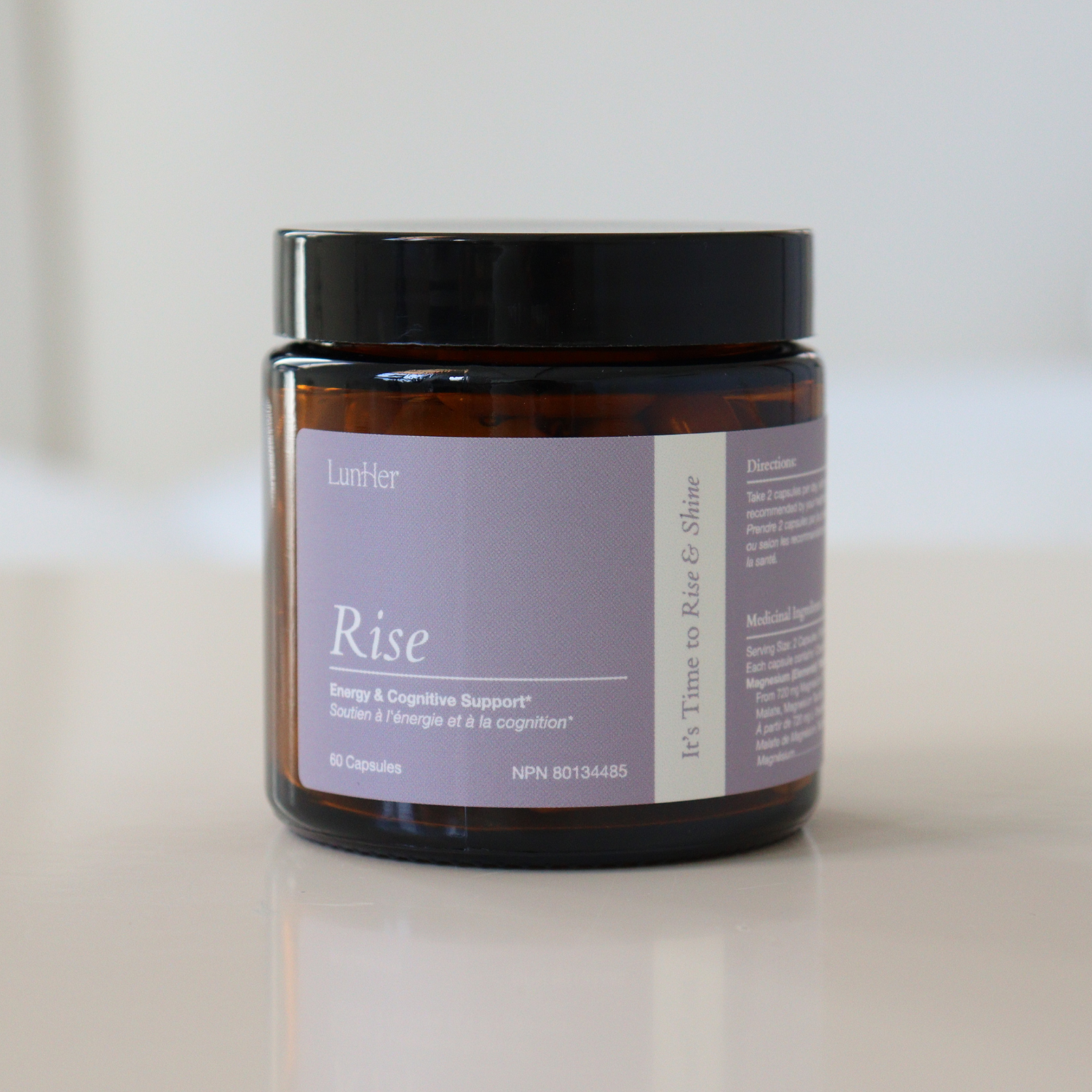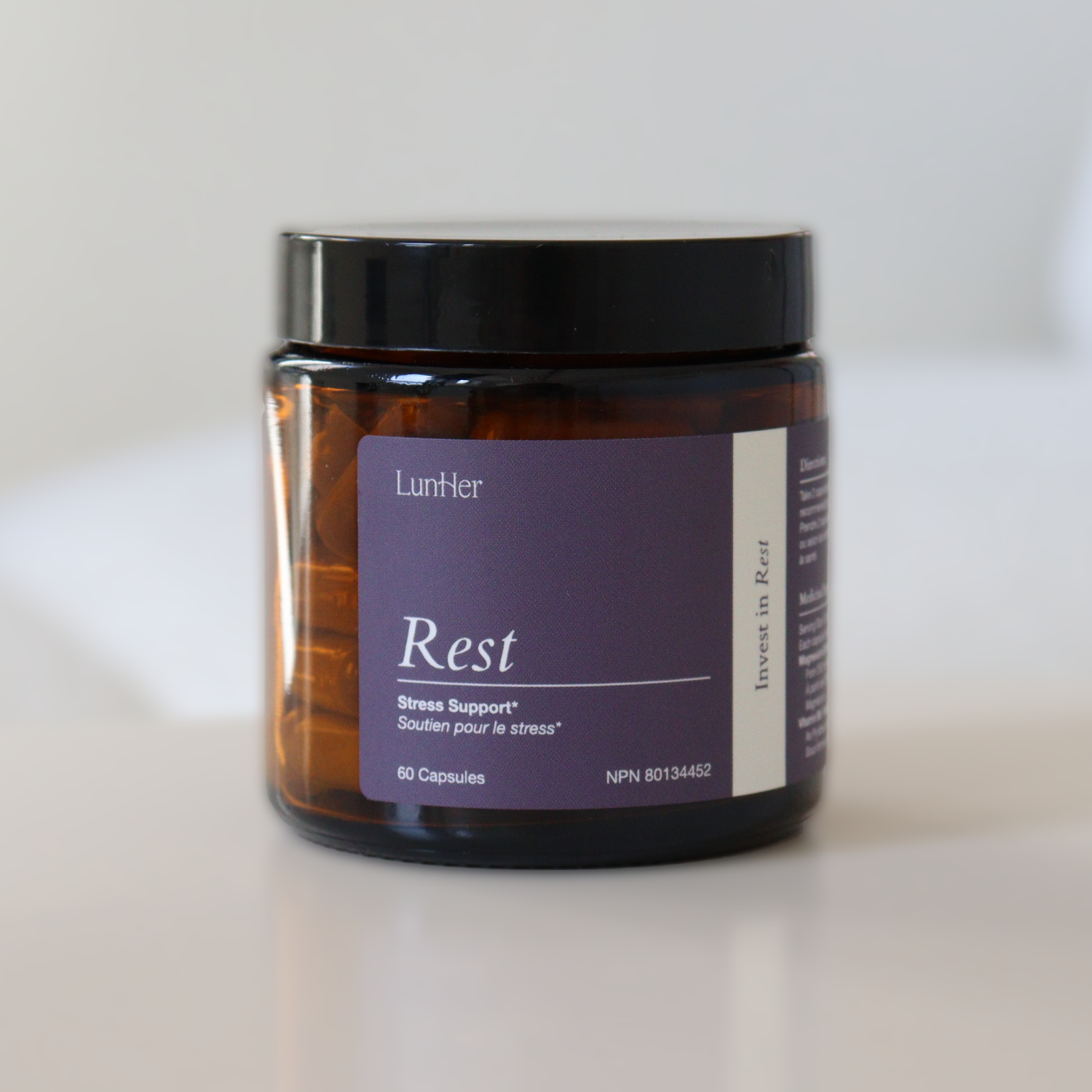
What are the Best Vitamins to Help Brain Fog?
Brain fog happens to everyone occasionally. Find out which vitamins may support better brain health and reduce this common occurrence.
The LunHer Take
Brain fog looks different for everyone but typically gets in the way of your concentration, learning, and focus.
Vitamins and minerals play a major role in helping the brain and the rest of the nervous system function properly. Some deficiencies can result in brain fog.
Whether you’re looking to improve memory or enhance cognitive function, there are many vitamins and supplements for addressing brain fog.
There are also lifestyle changes that you can make to reduce brain fog and support overall wellness
What is brain fog?
Have you ever found yourself reading the same sentence in a book over and over? Or picked up your phone and forgot what you were looking for? These are examples of brain fog, which may happen from time to time due to things like insufficient sleep, dehydration, and stress.
Brain fog can be hard to define because it’s not just one thing. It is a variety of sensations or symptoms that get in the way of our concentration, learning, and focus. It’s also not an official medical condition so it can look different from person to person. Some symptoms of brain fog include:
-
Feeling scattered thoughts and a lack of clear thinking
-
Difficulty concentrating or focusing
-
Distracting thoughts
-
Forgetfulness
-
Inability to multitask
What can cause brain fog?
Because brain fog isn’t an official medical disorder, it’s not hard to pinpoint an exact cause. However, temporary memory problems or the occasional brain fog can be caused by a few different things, including:
-
Stress
-
Lack of sleep
-
Nutrient deficiencies
-
Gut health issues
-
Hormone changes of pregnancy, menopause, and menstrual cycles
-
Cognitive decline associated with aging
Hormone changes have been shown to cause temporary cognitive changes. One study noted changes in the gray matter of the brain during the third trimester of pregnancy. Menopause can also cause cognitive disturbances. If you suspect that a medication you are taking is contributing to your brain fog, you should discuss this with your doctor.
Can vitamin deficiency cause brain fog?
Vitamins and minerals play a major role in helping the brain and the rest of the nervous system function properly. Some deficiencies that can result in brain fog include B vitamins, magnesium, vitamin C, vitamin D, and omega-3 fatty acids.
What are the best vitamins and supplements for brain fog?
There are many supplements on the market, so it’s important to understand which ones have been shown to support improved cognition. Whether you’re looking to improve memory or enhance cognitive function, these are ten of the best vitamins and supplements for addressing brain fog. If you have any medical conditions, make sure you consult your physician before taking any new vitamins or supplements.
-
Vitamin D
The brain contains vitamin D receptors so there is evidence to support its benefits for the brain, but there is still more research needed. Adequate vitamin D levels have been linked to improved cognitive function, memory, and attention. One study even found that it plays a role in neurodevelopment. Vitamin D also plays an important role in regulating calcium levels, which is essential for the proper functioning of neuron and neurotransmitter action. Therefore, making sure you’re getting enough vitamin D may help optimize brain health.
-
Magnesium
Magnesium is a powerful mineral that’s necessary for so many functions in the body, including brain health. It plays a critical role in brain function and mood since it is essential for nerve function and structure. Low levels of magnesium have been linked to poor mood and nervous system issues and adequate levels of magnesium in the brain have been shown to improve mental balance. Magnesium is also required for production of neurotransmitters, including GABA, which promotes calm, and serotonin, which supports mood. Therefore, it’s important to get enough magnesium through diet and possibly supplementation. Foods rich in magnesium include nuts, seeds, dark leafy greens, and beans.
-
Vitamin C
Vitamin C is a powerful antioxidant and can be found in many fruits and vegetables, making it easy to consume on a daily basis. Antioxidant compounds can reduce oxidative stress by neutralizing free radicals that may cause oxidative damage to cells.
-
B-complex
B-complex refers to the eight B vitamins. Vitamin B12 supports brain health by providing your body with the ingredients it needs to make a protective coating around nerve cells in the brain. In fact, one study found that elderly people with healthy levels of B-12 had better cognitive function than those who did not. While many foods contain B vitamins, some things can deplete B vitamin levels in the body. For example, alcohol has been shown to deplete B vitamins, which is why it may be helpful to supplement with vitamin B-complex if you consume alcohol regularly.
-
L-theanine
L-theanine is an amino acid that is naturally found in green and black tea. It may help support healthy stress levels which is a common culprit of brain fog. One study found that L-theanine can positively influence attention and reaction time response and promote neurogenic health.
-
Ginseng
Ginseng as an herbal supplement comes from the root of the ginseng plant. In one randomized control trial, American ginseng was found to improve working memory, memory speed, and cognitive performance. This study also found that ginseng supplements helped participants feel more calm. This is consistent with ginseng’s role as an adaptogen, which means that it’s a substance that aids the body in adapting to stressors.
-
Ashwagandha
Ashwagandha is another herbal supplement that’s known for its adaptogenic properties. It’s used as a stress reliever and has also been studied for its cognitive support. One study found that ashwagandha root extract provided both immediate and long-term memory improvement, attention span, and information processing speed. Another study found that it was effective in promoting mental balance in adults.
-
Iron
Iron helps hemoglobin in the blood transport oxygen throughout the body. As a result, iron deficiency can reduce oxygen delivery to cells which can cause symptoms such as fatigue, weakness, headache, and possibly brain fog. Iron supplements can help in some cases but you should not take iron supplements without measuring a full iron panel.
-
Omega-3s
Omega-3s are essential fatty acids that must be obtained from the diet since they cannot be made in the body. They help maintain nerve function in the brain and the rest of the body. DHA type omega-3 is present in concentrated amounts in the brain and it may improve the risk for numerous brain issues. It’s recommended that adults get at least 500 mg of combined EPA + DHA omega-3s daily, which can be from supplementation or fatty fish.
-
Vitamin E
Vitamin E is a potent antioxidant that is essential for promoting brain health and function. It helps protect the brain from oxidative stress and damage caused by free radicals. Vitamin E supplementation has been shown to help slow down cognitive decline associated with aging, as well as improve learning and memory. It can also help promote blood flow which can enhance overall cognition.
More Ways to Combat Brain Fog
There are also lifestyle changes that you can make to combat brain fog. Here are a few changes that will also contribute to your overall wellness:
-
Add more greens to your diet
-
Get sufficient omega-3 fats by consuming at least two servings of fatty fish each week
-
Drink 8-10 glasses of 8 ounces of water a day
-
Practice good sleep hygiene and focus on getting 7-9 hours of sleep a night
-
Manage stress levels by journaling, meditating, and practicing self-care
-
Add regular exercise to your routine
-
Limit your sugar intake.
The Bottom Line
Brain fog is the occasional inability to concentrate, the feeling of forgetfulness or distraction. There are many things that can cause it including aging, lack of sleep, and stress. To address brain fog and reduce its occurrence, it’s best to take a holistic approach that takes into account overall body wellness. Getting a good night’s sleep, drinking enough water, and maintaining proper nutrition and physical fitness all can help fight off this mental fog. Supplements can help ensure you get enough of the essential nutrients that support brain health. While occasional bouts of brain fog can come and go, seek professional guidance from a qualified healthcare practitioner if symptoms persist.





